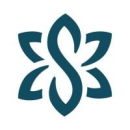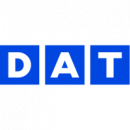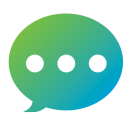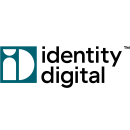Software developer bootcamps are exhausting and daunting. Add parenting a less-than-one-year-old baby to the equation and it becomes an undertaking that seems downright impossible.
But not for Amanda Sands. She overcame the balancing act of school and home and now works as a junior software engineer at TextUs. Sands doesn’t sugarcoat the stress of learning and interviewing in a competitive job market but does note that there are plenty of benefits in being a newcomer to tech.
“None of my previous careers were tech-related, but I spent a lot of time considering all the other skills that I learned in those careers,” Sands said.
Still, the balancing act that comes with changing careers and learning an immense amount of information in a short period of time is not for the faint of heart. But the people who have done it before are invaluable sources of advice and community for those following in their footsteps. They’re proof that it’s possible.
Learn how four former bootcamp graduates eventually secured their jobs and what advice they have for their peers.
Healthtech company SonderMind creates technology-driven solutions for therapists and behavioral health patients.
What appealed to you about enrolling in a coding bootcamp and breaking into a tech career? How has your lived experience compared to your expectations?
I had been working in customer service roles for over 10 years and decided I wanted a career change that would challenge me and provide me with more opportunities. I found my passion for software development by paying attention to the work the engineers were doing at a startup tech company I was working at while in a scheduling role. Through mutual friends, I found Turing School of Software and Design and resonated with their mission to support inclusion and diversity within the tech industry.
The need for women in tech is huge, and I wanted to be a part of that. I had this grand vision that as soon as I graduated from bootcamp, I would know everything I needed to know to do my job. The reality is I learned the fundamentals, and they are there to be built on. Every single day I am learning. I am constantly bouncing ideas off of my mentor. After work, I take classes and self-teach concepts I have questions on throughout my workday. A bootcamp is a great way to get you started, but it’s up to you to continue to invest in yourself and grow as a developer. This industry changes constantly, and there is always so much to learn. But that is part of the fun of it!
What were some of the biggest challenges you faced when entering the job market after finishing bootcamp? How did you overcome those?
It felt like the majority of companies were looking for developers with years of experience, which was intimidating, but there are great companies out there that see the value in junior devs and want to invest in them. I found it can be extremely difficult to even get an interview. It can be discouraging to put hard work and hours of your time into an application only to receive an automated rejection email. I once built an entire app that required me to learn multiple new technologies as the first step in an interview application process, only to receive an automated rejection over three months later.
It can hurt! Don’t take it personally. Be kind to yourself and give yourself grace. Remember, you are not alone in this experience. Talk to people about it, and find community. Reach out to your peers and bootcamp alumni for advice on their approach to the job search. Keep going, keep trying, and keep putting time and care into applications. The right company for you will see all that you have to offer and put in the work to bring you onto their team.
The right company for you will see all that you have to offer and put in the work to bring you onto their team.”
What advice would you give to current or prospective bootcamp students about landing their first job after graduating from their program?
Job hunting sites are helpful, but in my personal experience, it proved more important to be involved within my community. If you’re able, go to your local tech mixers and meetups. Make as many connections as you can. Ask to set up a 15- to 30-minute meeting with engineers in the field — people want to help you! If you’re feeling imposter syndrome, talk to someone about it and don’t let it take over. Take a moment each day to remind yourself of the valuable skills you have today that you didn’t when you started your bootcamp journey. Count your small wins; they are bigger than they may feel right now.
After graduating, continue to learn on your own. Udemy and YouTube can be your best friends. Touch code every day to keep things fresh in your brain for interviews, even if it’s one small exercise on Codewars. Find something you’re passionate about changing in the tech industry and speak about it in interviews. Finally, don’t be afraid to go after your dream job. It was my dream to work at SonderMind, and here I am, a bootcamp graduate and software engineer for an amazing company that is changing the world of mental health care. What is meant for you will find you, and you can do this!
DAT is a software company that operates the largest truckload freight marketplace in North America, connecting brokers, shippers and carriers and providing data-driven insights into logistics.
What appealed to you about enrolling in a coding bootcamp and breaking into a tech career? How has your lived experience compared to your expectations?
Before enrolling in code school, I worked in an admin role in the Jewish nonprofit space where I was incredibly connected to my community and passionate about the organization’s efforts, but I didn’t share the same passion for my day-to-day responsibilities; I found that my favorite role-specific tasks were all related to more technical work. Upon that realization, a friend told me about the Turing School of Software and Design, a mission-driven coding bootcamp that trains a diverse and inclusive student body to succeed in high-fulfillment tech careers. Knowing that DEI and addressing inequities in technology and software engineering are at the forefront of their mission was a big draw for me as a soon-to-be woman in tech.
Before learning about Turing, I assumed I needed years of experience to find an engineering career. However, I was excited to learn that there are resources, systems and programs for people like me who realized an interest in pivoting to engineering and technical work. Since graduating from Turing, I’ve landed various engineering opportunities. I am thrilled to now be a part of the DAT Freight & Analytics team, where I have a hand in building products for the supply chain industry — products that help ensure that the food we eat, the clothes we wear, and the products we rely upon are available to people every day across this country.
What were some of the biggest challenges you faced when entering the job market after finishing bootcamp? How did you overcome those?
The biggest for me was imposter syndrome, but I quickly learned that many of my peers in the bootcamp program and others with more traditional computer science degrees also experience similar feelings of self-doubt. Realizing that I wasn’t alone in those thoughts helped normalize those feelings, and I was able to lean on my support system, such as my Turing mentor and peers, to combat imposter syndrome, practice letting go of perfectionism and celebrate successes.
I quickly learned that many of my peers in the bootcamp program and others with more traditional computer science degrees also experience similar feelings of self-doubt.”
Other challenges I faced were the exhaustion and mental health impacts of juggling a job search with the final quarter of Turing’s intense curriculum, keeping up with the incredibly high expectations I set for myself and my natural tendencies to compare myself to peers. While it’s completely human to compare ourselves, I realized shifting focus to my individual efforts and achievements — while being ready to celebrate and support my peers as well — was a more fulfilling, effective approach that better aligned with my values. I can’t say enough about how essential the Turing community have been to my achievements both during and after the program, including landing my role at DAT.
What advice would you give to current or prospective bootcamp students about landing their first job after graduating from their program?
- Seek Community: When seeking a bootcamp program, ensure they have a strong alum network, and then engage with them — often! The alumni network at Turing has been integral to my job searches; their support helped me land my role at DAT!
- Be Realistic: Aim to keep your expectations of yourself reasonable and sustainable so that you don’t burn yourself out while job searching. Any job search process comes with challenges, especially after a career change and when seeking technical positions. Set realistic goals, take time for yourself, and focus on small wins along the way.
- Vibe Check: If you get bad vibes from a company interview process, pay attention to that feeling and speak up respectfully if something feels off. Don’t just take stuff because you’re feeling desperate.
- Give Thanks: Once you’ve landed a job, go out of your way to share the news with and thank everyone involved in your bootcamp journey and your job search process. A little thank you truly goes a long way and helps to build long-term relationships that could turn into future opportunities!
TextUs is a business-class text messaging platform that helps organizations improve their communications with staff, prospects and customers.
What appealed to you about enrolling in a coding bootcamp and breaking into a tech career? How has your lived experience compared to your expectations?
My story of breaking into tech is inextricably linked to my experience of becoming a mom. Before I was in tech, I worked in healthcare reimbursement. But once I had my daughter, my priorities shifted, and so did the way I viewed my career. I wanted to do work that was impactful and engaging, but I knew that I needed flexibility too. I realized that a career in software development could provide all of these things. So, I took the leap and started my bootcamp a month before my daughter’s first birthday. My daughter turned two last month, and I am now a professional software engineer. And I love my job! It’s a challenging career, and I’m always learning something new, which excites me.
The most surprising thing about working as a software engineer is that writing code is just one piece of my workday. I’ve applied my critical thinking skills in so many contexts beyond just writing code, whether I’m thinking about how a user might interact with a UI or joining a conversation with my engineering team about refining our workflow processes. Looking at big-picture concerns has helped me become a better coder and ask better questions.
What were some of the biggest challenges you faced when entering the job market after finishing bootcamp? How did you overcome those?
The job market for new developers is very competitive. But I was fortunate that my coding program, Turing School, offered a lot of help and support during my job search, and I took full advantage of that support. Every time my coding program offered practice interviews, I signed up. I asked for feedback on cover letters and resumes from mentors and alumni. In short, I asked for help everywhere I could. In my experience, there are many career changers that understand the challenges of breaking into tech, and many are happy to offer their advice and feedback.
In my experience, there are many career changers that understand the challenges of breaking into tech, and many are happy to offer their advice and feedback.”
The second biggest challenge for me was continuing to code every day after graduation, even though I didn’t have any more projects or exams to worry about. It was tempting to take a break from coding, but I knew I needed to keep growing my skills and practicing even though I was no longer in school. I made myself a job search calendar and scheduled time for coding, building projects, applying for jobs and researching companies or networking. This kept me accountable and focused during my search.
What advice would you give to current or prospective bootcamp students about landing their first job after graduating from their program?
Career changers should know that they bring unique skills and experiences to the tech space, even if they are newer to coding. None of my previous careers were tech-related, but I spent a lot of time considering all the other skills that I learned in those careers. Before becoming a developer at TextUs, I worked with customers daily in a healthcare reimbursement setting. This experience translates directly to the work that I do as a software engineer today, even though the work I’m doing is different and the context has changed. It’s vital to know your strengths and to be able to articulate how those strengths can add value to your company because experience in different industries and roles can be your greatest advantage.
Identity Digital, formerly known as Donuts, holds the world’s largest portfolio of non-dot-com, new top-level domain names such as .careers, .social or .support.
What appealed to you about enrolling in a coding bootcamp and breaking into a tech career? How has your lived experience compared to your expectations?
I was most excited about becoming an engineer because of the endless opportunities to learn. I felt that I had hit the ceiling in my last career, and the idea of constantly learning new ideas and technologies was really appealing to me. I’ve definitely found this to be true in my career so far, and I’ve been excited to see that even though I will constantly be learning new technologies every year, the foundation of knowledge I gained from bootcamp has made each new thing a little easier to learn.
What were some of the biggest challenges you faced when entering the job market after finishing bootcamp? How did you overcome those?
Getting my first job after bootcamp was intimidating! I struggled with imposter syndrome and was nervous about live coding for interviews. To overcome this, I practiced coding challenges and spent a lot of time preparing for interviews. I wrote down common interview questions and my answers to them and practiced answering the questions aloud so I could gain confidence in speaking about my tech experience. I even practiced doing a video interview with a friend to make sure I was comfortable using Coder Pad, one of the commonly used coding interview tools. Lastly, I continued to code daily to keep concepts fresh in my mind and have current projects that I could speak about in interviews.
Going to meetups and job fairs can be intimidating and awkward, but you can build relationships that can help you now or in the future.”
What advice would you give to current or prospective bootcamp students about landing their first job after graduating from their program?
I think the most important thing to do is to network and make connections with people. Going to meetups and job fairs can be intimidating and awkward, but you can build relationships that can help you now or in the future.
Starting to craft your resume early is also important. I spent time each week building and adding to my resume, and that way, I was ready to apply to jobs and actually accept a job before graduating.
Lastly, it’s important to continue practicing coding exercises or working on a project so that you can not only learn new things and keep your skills fresh but you’ll also have a project you can speak about in interviews.













